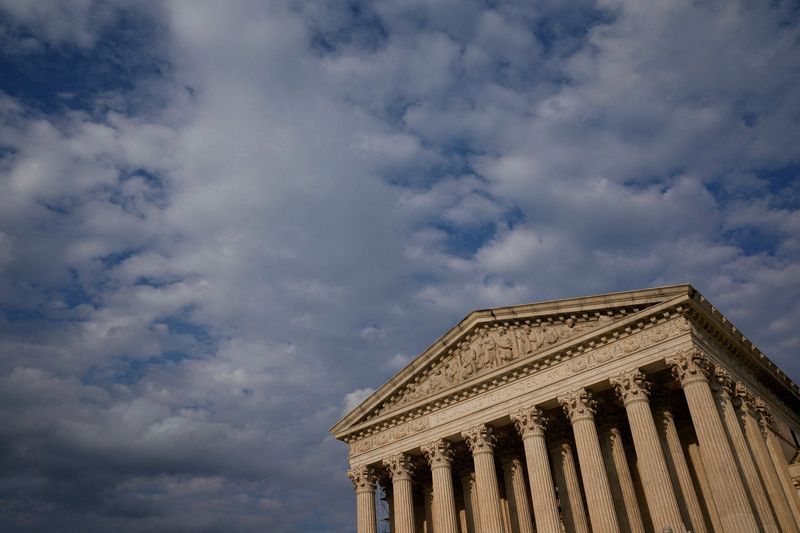By Andrew Chung
(Reuters) -The U.S. Supreme Court on Thursday bolstered the ability of employees to obtain accommodations at work for their religious practices, reviving a lawsuit by an evangelical Christian former mail carrier accusing the Postal Service of discrimination after being disciplined for refusing to show up for work on Sundays.
The 9-0 ruling threw out a lower court's decision rejecting a claim by Gerald Groff, a former mail carrier in Pennsylvania, that the Postal Service's actions refusing to exempt him from working on Sundays, when he observes the Sabbath, violated federal anti-discrimination law.
The Supreme Court, with its 6-3 conservative majority, has a track record of expanding religious rights, often siding with Christian plaintiffs.
The Philadelphia-based 3rd U.S. Circuit Court of Appeals had found that Groff's absences placed too much of a hardship on his co-workers and employer. The Supreme Court ordered the 3rd Circuit to reconsider the matter.
Groff's case centered on a federal anti-discrimination law called Title VII of the Civil Rights Act of 1964, which prohibits employment discrimination based on religion and other factors including race, sex and national origin.
Under Title VII, employers must make allowances for a worker's religious observance or practices unless that would cause the business "undue hardship" - which the Supreme Court in a 1977 case called Trans World Airlines v. Hardison determined to be anything imposing more than a minor, or "de minimis," cost.
The court in Thursday's ruling clarified the Hardison precedent. Conservative Justice Samuel Alito, who authored the decision, wrote, "We hold that showing 'more than a de minimis cost,' as that phrase is used in common parlance, does not suffice to establish 'undue hardship' under Title VII."
Alito added, "We think it is enough to say that an employer must show that the burden of granting an accommodation would result in substantial increased costs in relation to the conduct of its particular business."
Groff's attorney Aaron Streett praised the ruling, saying, "This is an important victory for Americans of all faiths, who may now follow their religious consciences in the workplace."
Groff worked as a "rural carrier associate" in Pennsylvania's Lancaster County, a job that required him to fill in as needed for absent career carriers, including on weekends.
The Postal Service in 2013, in a bid to remain profitable, contracted with Amazon.com (NASDAQ:AMZN) to deliver packages, including on Sundays.
Groff failed to report for assigned Sunday shifts. Postal Service officials sought to accommodate Groff by attempting to facilitate shift swaps, but were not always successful. His absences caused tension among other carriers who had to cover his shifts, the Postal Service said. Groff received several disciplinary letters and resigned in 2019.
The 3rd Circuit last year rejected his claims, finding that exempting Groff caused "undue hardship" because it strained co-workers and disrupted workflow.
Groups representing some religions that are in the minority in the United States including Islam, Judaism and Hinduism had backed Groff in the case, saying they are disproportionately denied religious accommodations, forcing them to choose between their religion and their jobs.
The dispute also sparked debate over whether religious people should be considered more legally deserving than others to have weekend days off from work.

Unions representing postal workers had urged the justices to consider the hardship that religious accommodations have on co-workers who, for example, lose out on a day to rest or spend with family when they have to cover for shift gaps that arise due to requests not to work by religious employees.
The justices have yet to decide another important case argued in December involving a Christian plaintiff. In that one, the Christian owner of a web design business is arguing for the right to refuse to provide services for same-sex marriages and is seeking an exemption from a Colorado law that bars discrimination based on sexual orientation and other factors.